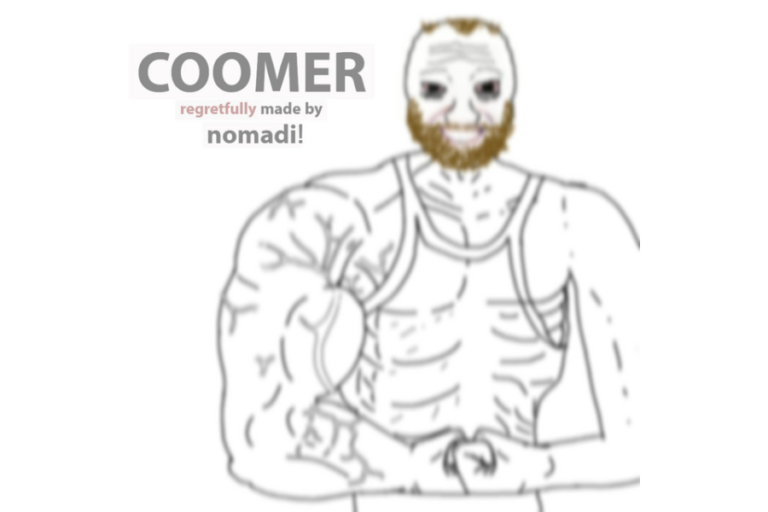Understanding CMHIYET: How Culture and Mental Health Intersect
The discussion of how cultural circumstances influence our perception of mental health is becoming more and more crucial in the modern world, as mental health awareness is growing. The dynamic intersection of culture and mental health is symbolized as CMHIYET, or Culture and Mental Health Intersect Yet Together. This connection influences how people view, feel, and handle mental health problems.
This article will explore the impact of culture on mental health, the disparities in cultural perspectives on mental illness, the obstacles individuals encounter while pursuing mental health assistance, and the crucial function of cultural competency in mental health services. We’ll also look at ways to dispel stigmas, promote an inclusive mental health approach, and create settings that value the diversity of cultures when it comes to mental health.
The Influence of Culture on Mental Health
The way that people approach mental health treatment and how they see mental health are greatly influenced by their culture. People’s views regarding mental illness, their beliefs about its origins, and their desire to seek care are all influenced by their cultural background. In this regard, culture may be compared to a double-edged sword: although it can provide comfort and support, it can also act as a barrier, preventing individuals from getting the essential medical care.
Many civilizations stigmatize mental health disorders. For instance, mental illness may be stigmatized in some Asian cultures as a sign of weakness or a personal failure, which deters individuals from receiving treatment. Comparably, certain Latinx and African groups could place more value on spiritual or conventional therapies than on Western psychiatric ones. It may be the case among certain cultures that mental disease is caused by a spiritual imbalance and that prayer other customary practices can heal it.
At the same time, culture may provide essential coping techniques and support structures. A person’s family and community are extremely important to their well-being in many indigenous cultures. Rather than emphasizing the individual, these cultures frequently place an emphasis on the healing and support of the group. In order to treat patients effectively and compassionately, mental health practitioners must have a thorough understanding of various cultural quirks.
Cultural Practices and Mental Health Treatment
Cultural traditions and norms sometimes have a significant impact on how different cultures address mental health. For example, in many Eastern cultures, holistic treatments such as herbal remedies, meditation, and acupuncture are often preferred over conventional medical techniques. People who go to religious or spiritual authorities for guidance and assistance may discover that spirituality is a significant factor in mental health treatment.
It is crucial for mental health providers to comprehend these cultural biases. It’s critical to acknowledge the cultural significance of these practices and consider how they could enhance more conventional mental health therapies rather than dismissing them as unscientific or ineffectual.
How Different Cultures View Mental Illness
Different cultural perspectives on mental illness may have a big influence on how people view their own mental health issues and the kinds of treatments they choose. Mental disease is often seen from a medical or psychological perspective in Western nations. Treatments for mental health issues may involve counseling, medication, or a mix of the two. In Western nations, there is a rising push to normalize open discussions about mental health and lessen the stigma associated with mental illness.
However, in other cultures, mental illness may be understood in very different ways. For example:
- In South Asian cultures, mental illness is sometimes seen as the result of personal weakness, bad karma, or the consequence of failing to live up to societal or family expectations. Mental health discussions in these cultures may be avoided entirely due to the fear of shame or dishonor.
- In African cultures, mental illness may be interpreted as a spiritual issue. Some communities may believe that mental illness is the result of possession by evil spirits or witchcraft, leading individuals to seek help from traditional healers rather than mental health professionals.
- In indigenous cultures, mental illness is often viewed holistically, with mental, physical, and spiritual well-being seen as interconnected. Healing in these cultures may focus on restoring balance within the individual and the community.
These diverse viewpoints highlight the need for mental health professionals to adopt culturally sensitive approaches when working with individuals from different backgrounds.
Stigma Surrounding Mental Health in Different Cultures
One of the largest barriers to receiving therapy is the stigma attached to mental health in many countries. In societies where mental health disorders are seen as moral failings or a cause of embarrassment for families, individuals may be reluctant to discuss their struggles. This resistance might result in untreated mental health problems, which would make the problem worse.
For example, in many Middle Eastern societies, mental health concerns are considered taboo, and people are frequently expected to cope with their difficulties discreetly. Recognizing mental illness in public may be interpreted as embarrassing the family and further excluding people in need of support. In these situations, mental health issues are frequently ignored, and people may turn to harmful coping strategies in place of getting professional assistance.
Barriers to Seeking Mental Health Support in Various Cultures
Navigating mental health care is challenging enough, but when cultural beliefs and practices come into play, the obstacles can become even more daunting. In many cultures, there are significant barriers to accessing mental health support, including:
- Stigmatization: As discussed earlier, cultural stigmas surrounding mental illness can prevent individuals from seeking help. In some cultures, there is a belief that seeking mental health treatment is a sign of weakness or failure.
- Language Barriers: For individuals from non-English-speaking backgrounds, language can be a significant obstacle to accessing mental health services. Miscommunication between patients and healthcare providers can lead to misunderstandings, misdiagnoses, or ineffective treatment.
- Lack of Trust in the Healthcare System: In some communities, there is a lack of trust in the healthcare system, especially when it comes to mental health. This mistrust can stem from historical mistreatment, discrimination, or negative experiences with healthcare providers.
- Cultural Beliefs: Traditional beliefs and practices may conflict with Western approaches to mental health care. For example, some cultures may prioritize spiritual healing, viewing mental illness as a manifestation of spiritual imbalance rather than a medical condition. This can lead individuals to seek alternative forms of treatment rather than conventional mental health care.
These barriers can make it difficult for individuals from diverse backgrounds to access the care they need, which is why culturally sensitive mental health services are essential.
Addressing Stigmas and Stereotypes in Mental Health Treatment
It is essential to tackle stigmas and myths around mental health services to ensure that individuals from diverse ethnic origins feel at ease seeking help. One of the first stages is educating communities about mental health and debunking false assumptions and negative ideas that contribute to stigma.
Community outreach activities, for instance, can encourage candid discussions about mental illness and assist increase understanding of the value of mental health. These programs can also enlighten people about the resources that are available and emphasize the advantages of getting treatment.
Mental health practitioners need to be taught to offer care that is culturally competent in addition to community education. Comprehending the ways in which cultural practices and beliefs impact an individual’s mental health experience and being cognizant of the particular difficulties encountered by individuals from diverse cultural backgrounds are necessary for this.
Breaking Down Stereotypes
Preconceived beliefs about mental illness can lead to inaccurate diagnoses, inadequate treatment, and mistrust between patients and healthcare providers. For example, medical personnel may dismiss symptoms or identify them as cultural differences rather than mental health disorders due to preconceived preconceptions about specific ethnic groups.
Professionals in mental health settings may create a more welcoming atmosphere where people feel comfortable expressing their experiences without worrying about being judged by others by encouraging empathy and compassion.
Cultural Competence in Mental Health Professionals
The capacity of healthcare professionals to recognize, value, and treat the cultural influences on a patient’s mental health is known as cultural competency in mental health care. This entails understanding how mental illness is viewed and treated differently in different cultures as well as the particular difficulties that people from different backgrounds encounter when trying to get treatment.
Developing cultural competency for mental health practitioners is a lifelong process that calls for constant learning, introspection, and a dedication to providing fair care. This might consist of:
- Learning about different cultural practices and beliefs: Mental health professionals should educate themselves about the cultural norms, values, and traditions of the communities they serve. This can help them better understand the cultural context in which their patients experience mental health issues.
- Challenging personal biases: Mental health providers must be aware of their own biases and assumptions about certain cultural groups. By challenging these biases, professionals can provide more effective and culturally sensitive care.
- Building trust with patients: Establishing trust is essential for successful mental health treatment. Mental health providers should create a safe and supportive environment where patients feel comfortable discussing their concerns.
Conclusion: Fostering a More Inclusive and Understanding Approach to Mental Health Care
In today’s globalized world, fostering a more inclusive and understanding approach to mental health care is more important than ever. By recognizing the impact of culture on mental health, addressing stigmas and stereotypes, and promoting cultural competence among mental health professionals, we can create a more supportive and empathetic environment for individuals from all backgrounds.
Cultural competence is not just about understanding different cultures—it’s about respecting the unique experiences and challenges faced by individuals from diverse communities. By adopting a culturally sensitive approach to mental health care, we can ensure that everyone has access to the support they need, regardless of their cultural background.
Ultimately, fostering an inclusive approach to mental health care requires open communication, empathy, and a commitment to challenging preconceived notions. By breaking down barriers and addressing the stigmas associated with mental illness, we can create a more supportive and understanding environment for individuals from all walks of life.
In conclusion, the intersection of culture and mental health—CMHIYET—offers a unique lens through which we can better understand the complexities of mental well-being in a diverse world. By embracing cultural diversity and fostering cultural competence in mental health care, we can ensure that individuals from all backgrounds receive the care and support they deserve. Together, we can build a more inclusive and compassionate approach to mental health, one that honors the rich tapestry of cultures that make up our world.






